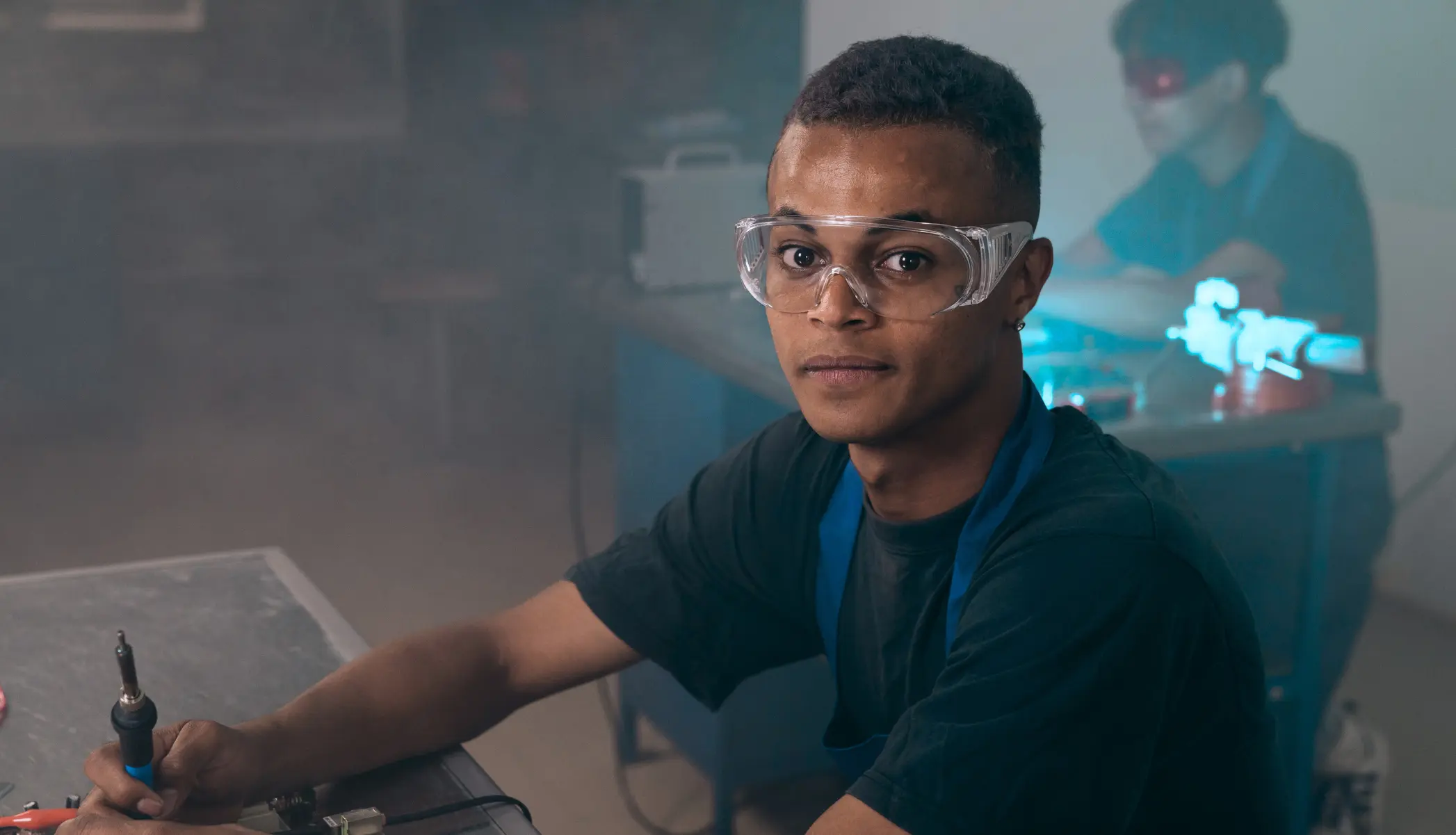Eder Joseph’s Bio
Eder Joseph, known to many as EJ, is the Assistant Superintendent at Burlington County Institute of Technology in New Jersey, a full-time Career and Technical Education high school district serving 2,200 students across more than 30 programs that integrate both academics and CTE.
Now in his fourth year in the role, EJ oversees admissions, curriculum, and instruction, and has helped guide the district through steady enrollment growth. His passion is ensuring that every student leaves high school with a clear plan for their future by expanding dual enrollment, amplifying student voice, and reimagining Work-Based Learning to bridge both college and career success.
With 25 years of experience in education, EJ has served as an elementary and middle school teacher, special education teacher, assistant principal, high school principal, and has provided oversight of Adult Education programs. He is pursuing his doctoral degree in Educational Leadership at Wilmington University, is part of the current cohort of the AASA National Aspiring Superintendent Academy, and serves on Middle States Accreditation site teams.
Our guest for this episode of College & Career Readiness Radio is Assistant Superintendent Eder Joseph.
EJ shares that about 65% of his CTE high school graduates pursue two- or four-year college, reflecting that CTE is a path to college as well as careers.
He highlights that parents often carry outdated views of CTE as “vocational,” and that it requires effort to change the narrative toward CTE as a viable, rigorous, and respected option.
EJ points out that many of his students use CTE pathways as a springboard, for example, learning culinary, cosmetology, or trades and then choosing to pursue business education in college so they can become entrepreneurs in their field.
He describes intentional program features such as having students in programs (like cosmetology) develop business plans, create resumes, and design business cards with help from other CTE students.
EJ notes that students in his CTE programs get the chance to showcase their business plans schoolwide, including details like pricing and service offerings, which builds real-world business skills.
EJ states that branding and program structure matter: his district groups CTE programs into “schools of” (e.g., School of Allied Health, School of Performing Arts Academy, School of Skills Trade) and uses “career major” terminology to enhance program appeal and clarity for families.
EJ is a big fan of community college because of its affordability and the flexibility for students to explore various pathways before committing to a four-year program.
Don’t miss what he shares about his own children who followed the two-year community college to four-year university path, resulting in significant cost savings.
EJ reports that dual enrollment is a core focus, both in academic and CTE courses, making it possible for students to earn college credit prior to high school graduation.
He urges district leaders to research local colleges’ offerings and build dual enrollment partnerships, noting that community colleges are generally eager to partner with high schools.
EJ explains that by aligning curriculum with college offerings and collaborating with decision-makers, high schools can quickly expand dual enrollment opportunities for students.
He emphasizes the value of work-based learning: students in allied health programs, for example, complete clinical rotations that help clarify which areas of the field they do (and do not) want to pursue.
EJ sees the process of learning what careers students don’t want as equally valuable as confirming what they do want, minimizing costly missteps after high school.
EJ believes that both credentials and lived experience are key—his students leave with “real” industry-valued credentials that pass scrutiny from industry partners.
He and his district use parent engagement sessions—including events with community college partners—to educate families about the financial benefits, flexible transfer options, and overall value of CTE and dual enrollment.
EJ shares that enrollment in his district has increased by 18% since adopting strategies like the exploratory major period and dual enrollment partnerships.
He stresses the importance of both CTE and AP/academic rigor, ensuring that all students are challenged and graduate prepared for either college or a successful career.
EJ’s “billboard” message: every student should graduate with a true understanding of the pathway they are choosing, so that they avoid spending unnecessary time and money finding their direction after high school.
.png)
.jpg)

.jpg)












